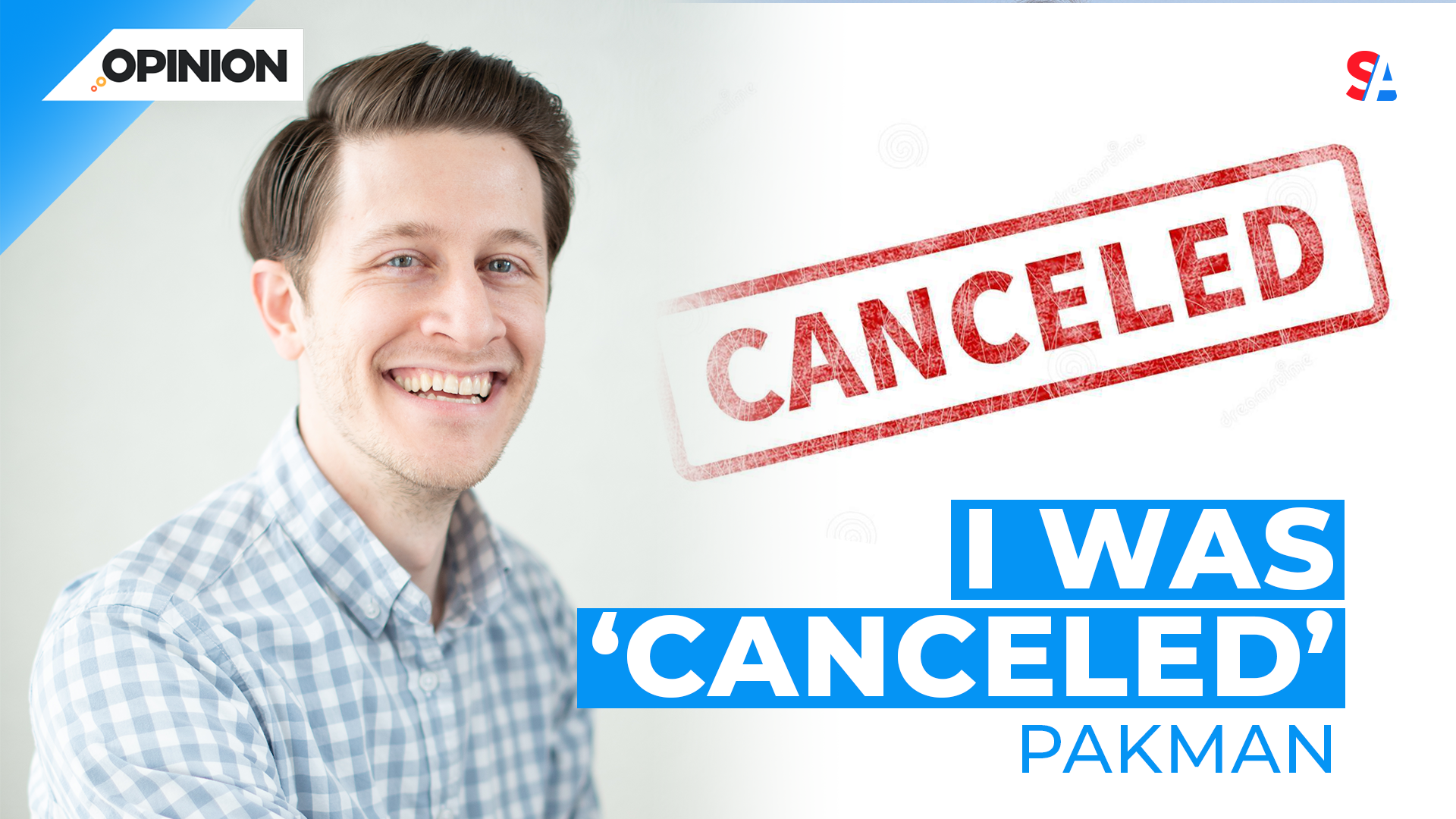
Commentary
-
Our commentary partners will help you reach your own conclusions on complex topics.
Let’s talk about “cancel culture.” You know, I was recently the target of an angry right wing mob led by Donald Trump Jr., Candace Owens, Sean Hannity and others, because of a tweet I sent about the Nashville shooting. And even though they say, “we don’t cancel people, the left cancels people,” they led a campaign that included their followers writing to my advertisers saying, cancel your ads with David Pakman. But I’m a big boy, I can take it. What I actually want to talk about today is the question of whether those who claim to be victims of cancel culture have actually been canceled.
What do I mean by that? Well, canceled culture is this term used to describe an act where a person or a group gets ostracized and boycotted, because of something they did or something they said. If it’s offensive, controversial, whatever the case may be. And they will say, I’ve been canceled. But my question is, have they really been canceled? Because very often, the people complaining, “I’ve been canceled,” are temporarily facing some consequences that are appropriate, given what they said or did. And then they get out of it and they still work and they do whatever.
Okay, so I’ll give you some examples. Former President Donald Trump was banned from several social media platforms because he was spreading false information about the 2020 election. He was inciting violence. It was a violation of Twitter and Facebook and YouTube’s “Terms of Service.” So he was banned. They called this cancel culture, he has been canceled. It was a reaction in line with Terms of Service for his own choices of what he said and what he did.
And then he created his own platform, and he’s running for president and he does rallies and he gets interviewed. He clearly has not been canceled. Okay, but David, that’s the president. Let’s talk about somebody else. Sure. How about Louie C.K.? The comedian Louie C.K. lost some gigs because he admitted to some sexual misconduct. Was it cancel culture? Well, these were the consequences in the heat of the moment to his own admittedly reprehensible behavior.
Since then, as the repercussions have faded, he’s produced a bunch of successful specials and he’s doing comedy and he’s on podcasts, and he’s doing all of this stuff. They claim that he was canceled, but he’s doing fine. Dave Chappelle, another example. Dave Chappelle was criticized for jokes he made about trans people in a Netflix special. He was then canceled, except his career is thriving. There was temporarily an issue. He’s recovered. He’s released multiple specials. He signed a lucrative deal with Netflix.
JK Rowling, the Harry Potter author, she faced a bunch of backlash, and she was accused of transphobia when she said some things on social media about trans people. She keeps releasing books and adaptations to her books and the film series and all of these different things. Okay, fine. But David, that was Trump, and then you’re naming like, really famous people? What about less famous people?
All right, let’s look at academia. Steven Pinker is a cognitive psychologist. He’s an author. He was in a heap of heat, we might call it, for some of the things he said about race and gender. And it was temporarily problematic for him. He keeps teaching at Harvard, he publishes wildly successful books. Has he been canceled? I would argue the answer is no.
Jordan Peterson is a classic, you know, Jordan Peterson, protests, criticisms, all these different things. He no longer teaches at the University of Toronto. He now makes 10 times as much money or more on a speaking tour and writing books and with an online course and with a daily wire podcast. They canceled him, we were told, but was he really canceled? The answer is — of course not.
So what it ultimately comes down to is that when we talk about cancellation, there are two aspects to it. There are: is the action worthy of a consequence? Did they really say something worthy of criticism or not? That’s step one.
I would argue in my case, when I made that tweet, about how even prayer didn’t protect a Christian school from a shooting, therefore guns, therefore gun violence won’t be prevented by prayer. The right wrongly claimed I was blaming the kids who died. Of course, I would never do that.
So part one is figuring out, was something deplorable actually said? In some cases, the answer is yes. In some cases, the answer is no. But when cancellation is claimed, we then have to go further and we have to say, what do we mean by canceled? Like people on Twitter harassed them for a few days, and maybe they lost the gig, but six months later, gained another one?
Now there are people who have not successfully come back to public life. Milo Yiannopoulos is an example. He was dropped by his publisher and lost a bunch of speaking engagements after he condemned, if not pedophilia, hebephilia. It’s been tough for him since and some would argue deservedly so. He ended up interning, I guess, from Marjorie Taylor Greene or whatever, but Milo has not recovered so far. What some would argue: it is correct, based on what he did.
Mel Gibson, after his insane anti-semitic episode, he did do some work. But he’s not where his career once was. But he did it. He did still get some work. So let’s categorize these. Let’s understand them. Let’s explain them. Let’s understand when repercussions make sense and when they don’t. But oh, they canceled everybody. We’ve got to get beyond those headlines.
-
JD Vance doesn’t add much to Trump ticket
At the 2024 Republican National Convention, GOP presidential candidate Donald Trump selected Sen. J.D. Vance, R-Ohio, as his running mate. With Trump expected to win Ohio in the Electoral College, some observers have questioned why Trump ultimately decided on Vance. One explanation is that Vance said he would have helped Trump overturn the results of…
-
How likely is a landslide victory in November for either candidate?
With President Joe Biden’s poor debate performance and the recent attempt on former President Trump’s life, some Democratic lawmakers are warning of a landslide Republican victory and urging Biden to step aside. But three new major national polls show signs of hope for Biden’s argument that he must remain the Democratic nominee. Watch the above…
-
Should Biden step aside or not?
President Joe Biden looked and sounded notably less healthy than usual during his recent debate against Donald Trump. Biden’s performance set off alarms for some Democrats, who began discussing the possibility of running an alternative candidate. While there may be promising candidates waiting in the aisles, it’s not clear if or how Biden could or…
-
How Biden can win Florida
Donald Trump is currently projected to win Florida again in 2024, just as he did in 2016 and 2020. But, in response to Republican Florida Gov. Ron DeSantis’s legal and cultural war against the Left — including what liberals say is a war on women’s rights, education and free speech — many Floridian voters appear…
-
Donald Trump is mentally unwell
Medical experts and observers have long questioned Donald Trump’s mental and psychological health, with malignant narcissism appearing as the most consistent diagnosis of Trump’s supposed illness. Those discussions have fallen to the sidelines in recent years, but resurfaced in response to certain speeches and behavior from the former president. Watch the above video as Straight…
Latest Opinions
-
 U.S. Department of Defense
U.S. Department of Defense
Congress still trying to figure out how to reduce wasteful military spending
-
 DVIDS
DVIDS
US Navy, Air Force making waves with new weapons at RIMPAC
-
 Getty Images
Getty Images
Israeli PM Netanyahu meets with Trump at Mar-a-Lago
-
 Getty Images
Getty Images
Growing US nuclear power resurgence reaches the nation’s heartland
-
 Getty Images
Getty Images
Beer from the sun, other solar thermal projects get government funding
Popular Opinions
-
In addition to the facts, we believe it’s vital to hear perspectives from all sides of the political spectrum.


